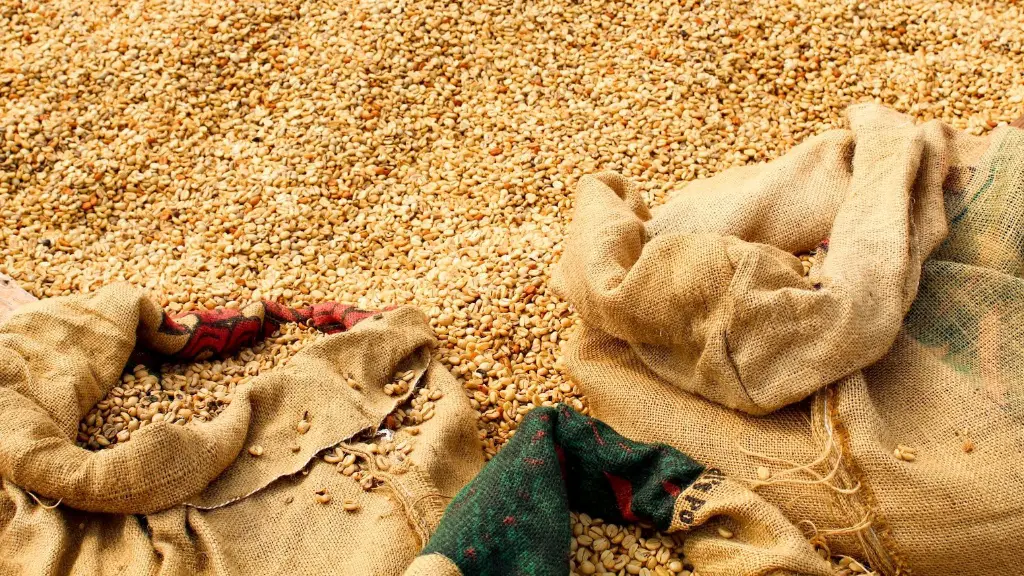Introduction
Coffee is one of the most popular drinks in the world, consumed daily by millions of people. From boiling it to perfection to finding the perfect cup of espresso, people of all ages and many cultures enjoy the taste and energising effects of the beverage. But what happens when you drink too much? While there is no definitive answer, it is believed by some experts that excessive caffeine consumption can lead to an increased risk of miscarriage.
What is Miscarriage?
Miscarriage occurs when a pregnancy ends spontaneously before the 20th week. It is estimated that up to 20% of known pregnancies end in miscarriage and it can be an emotionally devastating experience for many women and their families.
What Causes Miscarriage?
The cause of miscarriage is often unknown, but can be due to genetic defects, infections, and many other factors. In some cases, lifestyle and environmental factors may play a role.
Does Drinking Too Much Coffee Cause a Miscarriage?
There has been much debate and discussion on the potential link between drinking excessive amounts of caffeine and the risk of miscarriage. While it may be possible for overconsumption of caffeine to cause a miscarriage, there is no solid proof to support this claim. Several studies have concluded that consuming more than 400 mg of caffeine (the equivalent of 4 cups of coffee) a day can slightly increase the risk of miscarriage.
Are There Alternatives To Drinking Too Much Coffee?
Fortunately, there are ways to avoid the potential risks associated with drinking too much coffee. Many people opt for decaf coffee or take a break from drinking coffee altogether to reduce their intake. Other alternatives include switching to tea, diluting coffee with a little bit of hot water, and limiting coffee intake to two cups a day.
Experts’ Perspectives on Drinking Too Much Coffee
Experts suggest that regardless of whether or not drinking too much coffee increases the risk of miscarriage, it is important for pregnant women to be aware of their caffeine consumption. Some suggest limiting coffee consumption to one or two cups a day and avoiding caffeinated drinks after 4 pm.
The Effect of Caffeine on Fertility
When it comes to fertility, too much caffeine can be just as detrimental as too little. Research suggests that consuming up to 300 mg of caffeine a day (the equivalent of 3 cups of coffee) can impair fertility. Additionally, some studies have linked excessive caffeine consumption to a lower chance of conception.
Conclusion
In conclusion, drinking too much coffee can be harmful to one’s health and is likely to have an adverse effect on fertility. While increasing caffeine intake may slightly increase the risk of miscarriage, it is difficult to draw a definite conclusion without more research. In any case, it is important for pregnant women to be mindful of their coffee consumption and to limit their intake to two cups a day or less.
How Caffeine Impacts Pregnancy Nutrition
Health professionals advise pregnant women to get adequate nutrition whilst pregnant, but does caffeine intake affect this? Studies suggest that excess caffeine consumption can compromise nutrient absorption, causing nutrient deficiencies and putting the mother’s health (and the baby’s health) at risk. Additionally, too much caffeine can put extra strain on the heart and interfere with the natural hormonal balance in expectant mothers. This can lead to mood swings, anxiety, and other symptoms.
Caffeine and Breastfeeding
Caffeine can passed through breast milk, making it important for breastfeeding mums to keep track of their coffee intake. This can be done by keeping tabs on the time of day and the amount of caffeine consumed. For example, drinking a cup of coffee early in the day is less likely to interfere with sleep, whereas drinking a cup of coffee later in the day can lead to sleep disturbance.
Does Caffeine Have Any Illustrious Benefits?
It may surprise some, but caffeine does have some positive benefits if consumed in moderation. It can enhance alertness, improve concentration and boost physical performance. Studies have also shown that it can lessen the effects of some illnesses, such as the common cold and diabetes. However, with any substance, it is important to be aware of the amount consumed, and pregnant women are advised to lower their caffeine intake altogether.
Take-Home Message
Although the current evidence does not suggest that drinking too much coffee leads to a miscarriage, it is important for pregnant women to be mindful of their caffeine intake and keep track of their daily intake. Additionally, excessive caffeine can have negative effects on fertility and pregnancy nutrition, so it is best to have no more than two cups of coffee a day during pregnancy.



